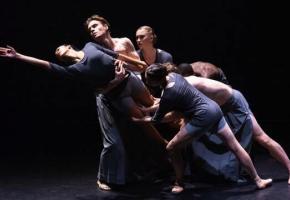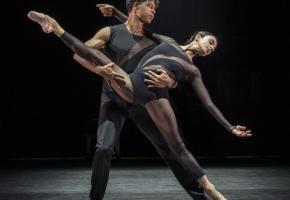It may seem bold to claim that Carlos Acosta is the most influential male ballet dancer of his time. But then, his rise to fame has indeed been a bold one. It was not by mere luck that the young boy growing up in an impoverished Havana barrio found himself, thirty-eight years later, on stage at London’s o2 arena, alongside Tamara Rojo and The Royal Ballet, demonstrating his unmatched elegance and awesome athleticism before an audience of 13,500.
The accidental ballet dancer
The eleventh and youngest child to a truck-driver, like most Havana kids growing up with few material possessions, Carlos would take to the streets to play football and to break dance.
Pedro Acosta thought his son’s boisterous behavior, verging on hyperactive, could do with some disciplinary reigning in and soon enrolled him at the National Ballet School of Cuba. The daily free lunches, he admits, were also an attractive prospect.
After graduating with flying colours and a gold medal, Carlos went on to dance as a guest at several companies worldwide from 1989-1991. Even at this early stage, a fine collection of prestigious prizes were already testament to Carlos’s pure talent, harbingers of his imminent glory.
Taking on the world
It was Ivan Nagy of the English National Ballet who first invited Carlos to dance as Principal, in 1991. Perhaps his most notable appearance at this stage in his career was as the Prince in Ben Stevenson’s interpretation of Tchaikovsky’s The Nutcracker.
Stevenson was so impressed with Carlos’s performance that he whisked him off in 1993 to dance as Principal with the Houston Ballet. Not, however, before Carlos had the chance to make a brief return to his homeland in 1992, to dance with the National Ballet of Cuba for six months under Alicia Alonso.
Having already interpreted iconic roles such as Swan Lake’s Prince Siegfried and The Rite of Spring’s Chosen One, Carlos now began to forge roles of his own. He created the role of Frederick in Stevenson’s Dracula in 1997, and that of Misgir in The Snow Maiden 1998.
That same year, Carlos finally had the honour of joining the Royal Ballet, then directed by Anthony Dowell. Five years later, in 2003, Carlos’s title was changed to Principal Guest Artist, to allow him to continue with his busy international performance schedule. He retains this title today.
Over the years, Carlos has danced as Guest Principal Artist with all of the world’s top ballet companies, in the United States, Argentina, Chile, Japan, Germany, Russia, France and Greece.
New directions
It was in 2002 that he channeled his creativity in a different direction, writing and choreographing Tocororo, a semi-autobiographical work. The show premiered in Cuba and went on to meet phenomenal success, smashing all box office records at Sadler’s Wells and being nominated for a 2004 Olivier award.
Carlos’s talent for creating his own works continued to flourish, and he has written and choreographed both classical and contemporary dance productions in the UK and all around Europe. These have been met by public praise and a string of awards, and have attracted performances from Royal Ballet guest artists.
Yet Carlos has never lost sight of his Cuban origins, and while he has some of Europe’s top dancers and choreographers at his disposal, he often draws on undiscovered talent from his home country. It was also undoubtedly thanks to Carlos that the Royal Ballet went on tour to Cuba in the summer of 2009.
In these ways, Carlos shares his success, using it as best he can to help his countrymen to follow in his footsteps and establish Cuba’s reputation as a ballet nation fit to match its European counterparts in both skill and potential.
Putting pen to paper
But Carlos’s creative juices have flowed even further afield than choreography and writing. In October 2007, his autobiography and first written work, ‘No Way Home’, was published by Harper Collins (UK) and Scribner (USA). This brave attempt to lend voice to an extraordinary life story soon found itself branded BBC Radio 4’s Book of the Week, and enjoyed substantial media attention.
It is indeed a story that has fascinated the public – so much so, in fact, that a feature film based on Carlos’s life is currently being developed. Carlos’s other brushes with cinema include an appearance in Natalie Portman’s ‘New York, I Love You’, and a role in ‘The Day of Flowers’, a feature principally shot in Cuba and soon to be released.
A ballet-dancer-turned-writer, dabbling in cinema? Is this casual crossing between drastically different art forms something the public are ready to swallow? As Carlos often maintains in interviews, as long as a project is interesting and inspiring, he is willing to try anything that comes his way.
And he is indeed a man of his word. In October this year, Carlos’s debut novel ‘Pig’s Foot’ will be released in the UK, translated into English by Frank Wynne and published by Bloomsbury. This latest work has even seen Carlos named on the Waterstones 11, one of the most highly-respected annual lists of novels to watch out for.
In a recent interview with BBC News, Carlos admitted that he had embarked upon this literary endeavor with no hope of ever getting anywhere. “I began writing it with very low expectations,” he insists. “I didn’t think anybody was going to care.”
But care we did. It is not only the depth, but also the breadth, the variety of Carlos’s talent that has awed the public worldwide. It cannot be denied that he is truly unique in the adventurous nature of his artistic spirit. Whether between countries, cultures, genres or art forms, boundaries are non-existent in the world of Carlos Acosta.
And he is unique, too, in his modesty. When quizzed on his writing techniques, he pleads ignorance to any particular method, adding humbly that “maybe if I ever decide to write another, I will have learnt something.”
We’d like to think it may be thanks to spending so much time in the UK, but Carlos’s self-effacing nature seems not to have changed since Latino Life had the honour of speaking to him in 2011. Back then, he seemed confident that he had reached his peak, assuring us that “it’s downhill from here.”
But Carlos, it seems, could not have been more wrong.

















